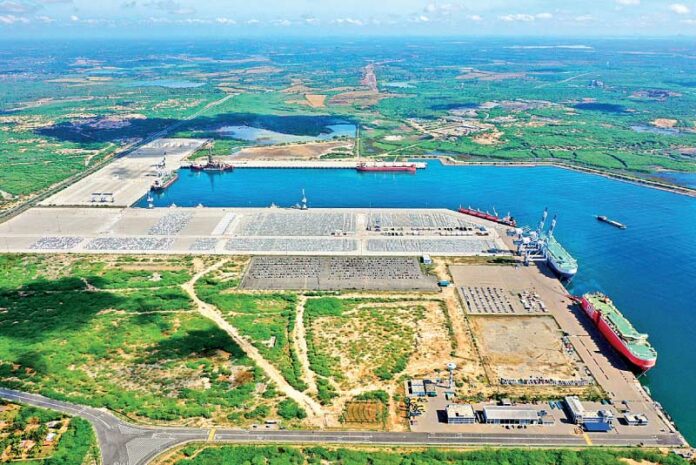By: Staff Writer
May 19, Colombo (LNW): The much-anticipated US$3.7 billion Hambantota oil refinery project, spearheaded by Chinese energy giant Sinopec, is facing fresh delays due to unresolved tax concession negotiations with the Sri Lankan government, according to official sources.
Touted as the largest foreign direct investment (FDI) in Sri Lanka’s history, the Hambantota Greenfield Oil Refinery project was initially announced in March 2019.
It is a joint venture between Singapore-based Silver Park International (70%) and Oman’s Ministry of Oil and Gas (30%). Therefore, contrary to recent political claims, this investment predates the current NPP/JVP government, energy experts clarified.
Despite this, MP Lakmali Hemachandra claimed on Sirasa TV that the project investment was secured by the current administration, asserting that previous governments had not finalized any agreements.
She highlighted that no loans were obtained for the refinery, suggesting the government’s success in attracting investments without borrowing. Her statements, however, have been criticized by energy professionals as misleading.
Former Power and Energy Minister Kanchana Wijesekera confirmed that Cabinet approved the agreement with Sinopec on 27 November 2023. The proposed refinery, with an expected total investment of $4.5 billion, aims to serve both local and export markets.
Out of seven companies that responded to an early 2023 expression of interest, only Sinopec and Singapore-based Vitol Asia were shortlisted, but Vitol later withdrew. Sinopec remains the sole bidder.
The project has encountered hurdles beyond tax terms, including land, logistics, port fees, and environmental concerns.
Though a 500-hectare land allocation has been agreed in principle under BOI regulations, no lease has been formally signed.
The then government awaited environmental clearance before moving forward, and the Central Environmental Authority has not provided recent updates on the Environmental Impact Assessment (EIA).
Prof. Udayanga Hemapala, Secretary to the Ministry of Energy, confirmed that Sinopec submitted its proposal under BOI law, which caps foreign equity at 20%. However, the company is seeking a higher stake and additional tax concessions—currently under negotiation.
Ceylon Petroleum Corporation (CPC) high official noted ongoing talks with Sinopec regarding integration into the local supply chain. He hinted that Sinopec may be considering a separate Expression of Interest (EOI) for the Sapugaskanda refinery, signaling broader ambitions in Sri Lanka’s energy sector.
While the original investment figure remains unchanged, further delays could prompt the government to issue a new RFP and invite other potential investors if talks with Sinopec fail to conclude successfully.

